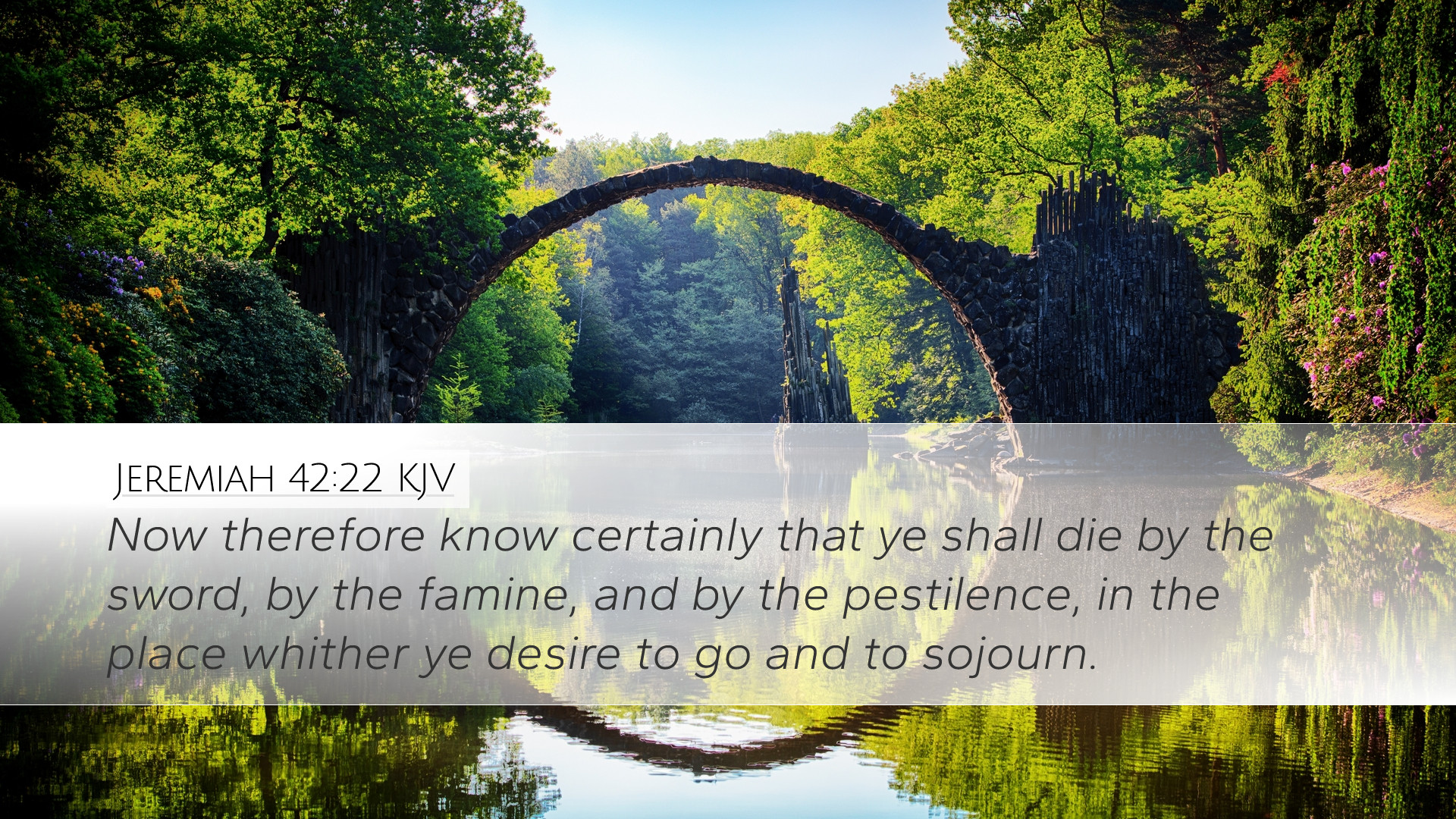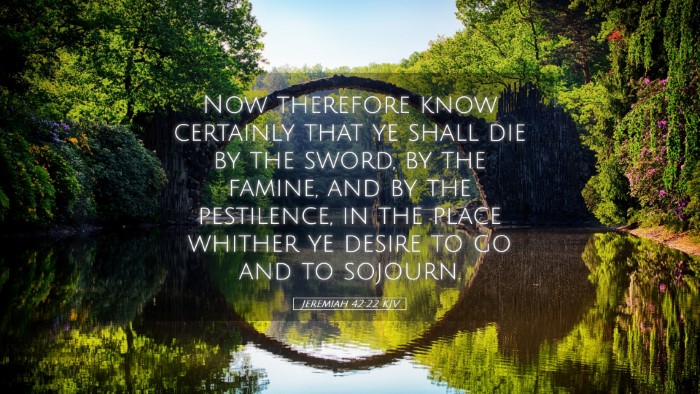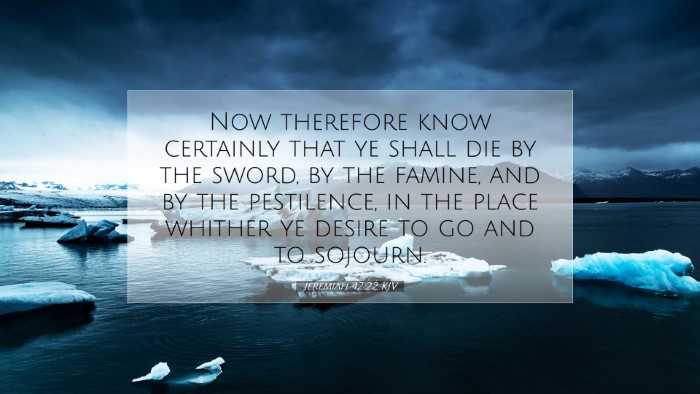Commentary on Jeremiah 42:22
Jeremiah 42:22 states:
"Therefore, now know certainly that you shall die by the sword, by famine, and by pestilence in the place where you desire to go to dwell."
This verse serves as a solemn warning from the prophet Jeremiah to the remnant of Judah who sought his counsel after the fall of Jerusalem. In this commentary, we will draw from key insights of prominent public domain theologians, exploring the significance and implications of this verse.
Contextual Background
To understand Jeremiah 42:22, it is essential to reflect on the historical context surrounding it. After the destruction of Jerusalem by the Babylonians, a group of survivors sought refuge in Egypt. Fearing retribution from Babylon, they turned to Jeremiah for guidance.
As Matthew Henry notes, the people's desire to flee to Egypt was rooted in a lack of trust in God's protection and providence. They were looking for a temporary solution rather than relying on God's promise to remain with them through their trials.
Divine Judgment
The verse conveys a strong message of divine judgment. Albert Barnes emphasizes that the consequences of disobedience to God are grave and inevitable. The phrase "you shall die by the sword, by famine, and by pestilence" serves to highlight the completeness of God's judgment—a judgment that encompasses both physical and spiritual ramifications.
According to Adam Clarke, this comprehensive suffering serves to illustrate the seriousness of their rebellion against God's directive. The Israelites were rebelling against a prophetic word, demonstrating a pattern of disobedience rooted deep within their hearts.
God's Sovereignty and Human Agency
This verse also raises profound questions about God's sovereignty in the face of human choices. The remnant sought to control their destinies by choosing to escape to Egypt. However, God's pronouncement underscores that such attempts are futile when they oppose His will.
Matthew Henry insightfully remarks that God's will supersedes human plans. This theme permeates Scripture, reminding believers that while they may have free will, it is God's plans that ultimately prevail.
The Role of the Prophet
Jeremiah serves as an essential voice of truth during this turbulent time. Albert Barnes discusses the role of the prophet as one who stands between God and the people, delivering messages of both hope and warning. Jeremiah’s faithful proclamation of God’s warning indicates the seriousness with which he takes his prophetic role.
Moreover, the refusal of the people to heed Jeremiah's warning exemplifies a tragic repetition of Israel's history. Adam Clarke suggests that this underscores the importance of recognizing and submitting to the prophetic authority established by God, which is vital for the health of the community of faith.
Lessons for Today
As we reflect on Jeremiah 42:22, several key lessons emerge for contemporary believers:
- Trust in God's Guidance: The remnant's decision to flee to Egypt symbolizes a lack of faith in God's plan. Believers today are encouraged to seek and trust divine guidance, especially in times of uncertainty.
- The Consequences of Disobedience: The dire warnings reflect the seriousness of sin. Like the Israelites, modern believers must understand that straying from God's commands can result in severe spiritual and physical consequences.
- Importance of Prophetic Voices: The role of God's messengers remains crucial. Believers are reminded to value the accountability and direction provided through biblical teaching and prophetic messages today.
Conclusion
Jeremiah 42:22 serves as a poignant reminder of God's unwavering justice and the dire consequences of turning away from His commands. The insights of Matthew Henry, Albert Barnes, and Adam Clarke enrich our understanding of this passage, providing both historical context and spiritual application. For pastors, students, theologians, and Bible scholars, this verse calls for deep reflection on our faithfulness to God amidst trials and our response to divine counsel.


